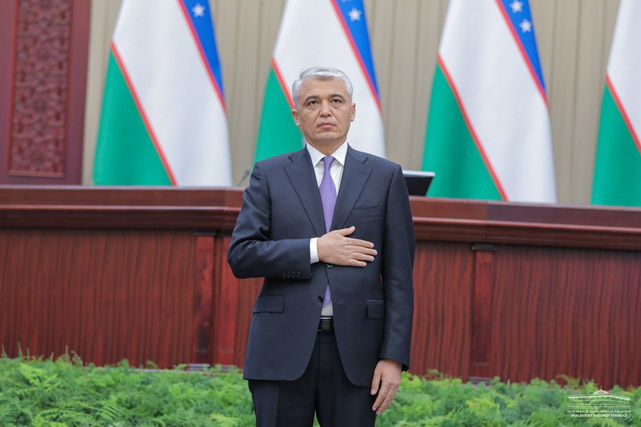
Uzbekistan Launches Major US$1 Billion PPP Projects for Wastewater Treatment
Uzbekistan Launches Major US$1 Billion PPP Projects for Wastewater Treatment
Tashkent, Uzbekistan (UzDaily.com) — On 7 October, Minister of Construction and Housing and Communal Services Sherzod Khidoyatov presented plans for public-private partnership (PPP) projects in wastewater treatment during a session of the Legislative Chamber of the Oliy Majlis.
One of the largest initiatives addresses the unpleasant odors in Tashkent’s Sergeli district, emanating from the Salar treatment facilities. The project involves constructing new treatment plants with a capacity of one million cubic meters of wastewater per day, in partnership with the UAE-based company TAQA. The estimated cost of the project is around US$1 billion. Wastewater from the Salar and Bektemir facilities will be redirected to the new complex, which will be located in the Surum neighborhood. The plan also includes building a 42-kilometer sewer collector. Once operational, the old facilities will be decommissioned, ensuring complete wastewater treatment. The project will be coordinated with the development of the New Tashkent city program to eventually connect new districts to the system.
Additionally, two other projects involving UAE companies are planned. In Kashkadarya region, the water drainage system will be modernized with Etihad in a US$600 million initiative, and a US$50 million project with Enviroel will focus on wastewater recycling and production of fuel products, including kitchen grease filtration systems.
Further plans include implementing drainage systems in the Ferghana and Jizzakh regions with Saudi Arabia’s Miahona, and reconstructing a treatment complex in Namangan region with UAE-based Metito, increasing its capacity to treat 100,000 cubic meters of wastewater per day.
To enhance treatment efficiency, the projects will employ Nereda technology, which produces granular “activated sludge” and oxygenates wastewater.
According to Sherzod Khidoyatov, the projects will improve water treatment efficiency and provide high-quality services to an additional 200,000 people. Combined with initiatives funded by the state budget and international financial institutions, the coverage of centralized sewerage services is expected to rise from 20.5% to 22.3% in 2025.